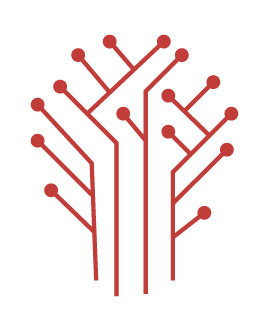

At the heart of intelligent automation lies embedded technology — compact computing systems designed to control specific functions within larger machines. These systems are small yet powerful, and they allow devices to perform complex operations with minimal human input.
From home appliances to self-driving vehicles, embedded systems are everywhere. They operate quietly in the background, processing data, running sensors, and making real-time decisions. Their efficiency and precision make them essential for the growing world of smart devices.
Businesses that aim to innovate through automation often depend on microcontrollers like Arduino, which provide flexibility and reliability. Hiring an experienced hire arduino programmer can help companies design customized automation systems, integrate IoT features, and bring advanced projects to life.
The Internet of Things (IoT) connects everyday devices to the internet, enabling them to communicate, share data, and make intelligent decisions. This interconnected network is transforming how businesses operate.
For example, IoT-powered systems in factories can track equipment performance, predict breakdowns, and automatically order replacements. In retail, smart sensors can monitor stock levels and adjust product displays based on customer behaviour. In cities, IoT solutions manage energy use, traffic flow, and waste collection more efficiently.
The ability to connect machines, analyse data, and respond intelligently has opened endless possibilities for innovation. IoT isn’t just about connectivity — it’s about creating smart ecosystems that adapt to human needs in real time.
Retail is one of the industries most affected by automation. Traditional shops are being replaced or enhanced by self-service technologies that offer customers greater convenience and personalisation. Smart kiosks and vending systems are leading this transformation.
Modern vending systems can accept multiple payment options, display promotions, monitor inventory, and even analyse customer preferences. These machines use embedded controllers and cloud-based analytics to deliver a seamless experience.
Many businesses now seek custom vending solution designs to meet specific customer needs. For example, a gym might install a vending system that sells protein bars and energy drinks, while an office might use one to provide snacks, stationery, or tech accessories. Customisation helps brands connect with users in unique, meaningful ways while keeping operations efficient.
Artificial Intelligence (AI) is the driving force behind the next stage of automation. By enabling machines to learn from data and adapt to user behaviour, AI brings intelligence to systems that were once purely mechanical.
Machine learning algorithms allow automated systems to predict user preferences, optimise operations, and make decisions in real time. For instance, an AI-powered vending unit could analyse which products sell fastest during certain hours and automatically restock those items.
AI also helps improve customer engagement through personalisation. Machines can display targeted offers or adjust pricing dynamically based on demand. This intelligent interaction not only increases sales but also enhances the user experience.
As the world faces environmental challenges, sustainability has become a top priority. Fortunately, smart technology is making it possible for automation to be both efficient and eco-friendly.
Modern machines are designed with energy-efficient components that reduce power consumption. IoT-enabled monitoring helps detect unnecessary waste and optimise resource use. For example, smart vending systems can automatically adjust their cooling or lighting based on usage patterns, significantly cutting down electricity use.
Custom-built automation also reduces waste by ensuring better stock management. Businesses no longer have to worry about overproduction or expired inventory, as real-time tracking keeps everything in check. This creates a greener, more sustainable future for both manufacturers and consumers.
Behind every smart system is a skilled programmer who bridges the gap between hardware and software. Arduino, one of the most popular open-source hardware platforms, plays a central role in developing automation projects.
Businesses often look for specialised developers who can design, program, and optimise these embedded systems. Hiring an experienced Arduino programmer ensures that the automation system performs efficiently and integrates smoothly with other technologies.
Arduino programmers bring innovation to life by writing code that controls sensors, motors, and network communications — making machines responsive and intelligent. Their work is essential for industries looking to innovate through automation.
Every industry has unique needs, and one-size-fits-all solutions no longer work. Customisation is becoming the key to success in automation. Whether it’s a retail vending system, industrial sensor network, or automated logistics system, businesses are demanding tailor-made solutions that fit their goals.
With a custom vending solution, companies can combine design, technology, and data analytics to deliver personalised services. These systems not only attract customers but also improve efficiency through predictive maintenance and data-driven decision-making.
Customisation extends beyond features — it defines how machines interact with users, adapt to environments, and evolve with time.
As technology continues to advance, the line between digital and physical systems will blur even more. AI-driven robotics, edge computing, and IoT-enabled devices will make automation smarter and more human-like.
We can expect to see vending systems that restock themselves, robots that repair machines autonomously, and AI systems that predict market trends with precision. Businesses that embrace these innovations early will stay ahead of the competition.
However, innovation requires expertise, creativity, and collaboration. From hiring talented developers to designing tailored systems, the journey to automation excellence starts with the right foundation.
Smart automation is more than just a trend—it’s a transformation that’s reshaping industries across the globe. With IoT, AI, and embedded technology working together, machines are becoming intelligent partners in business success.
By investing in skilled programmers and adopting innovative systems, companies can unlock new opportunities for growth and sustainability. Whether through a custom vending solution or other smart applications, technology continues to prove that the future is automated, connected, and endlessly intelligent.